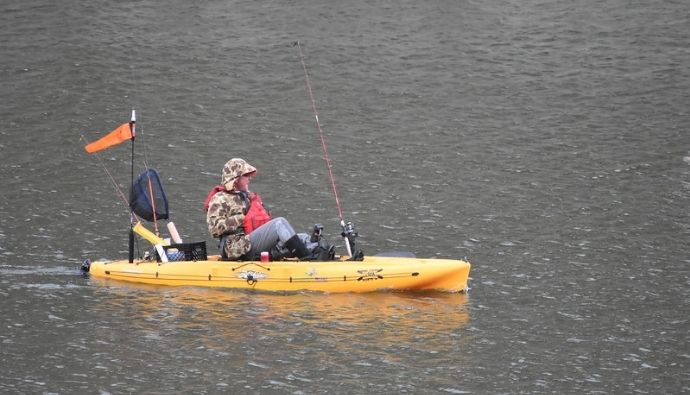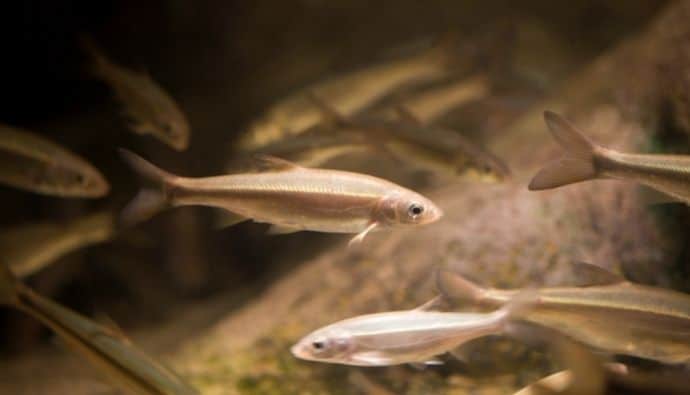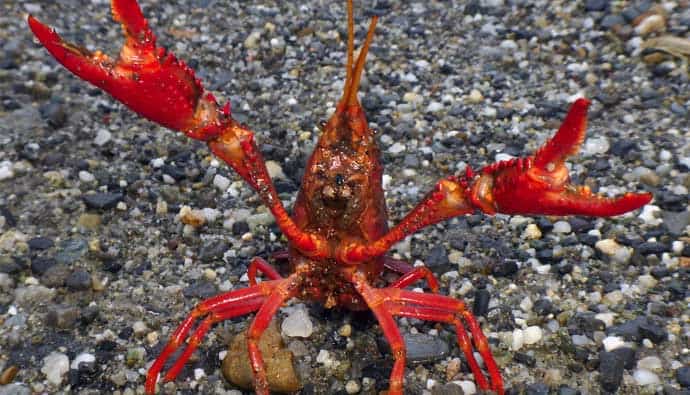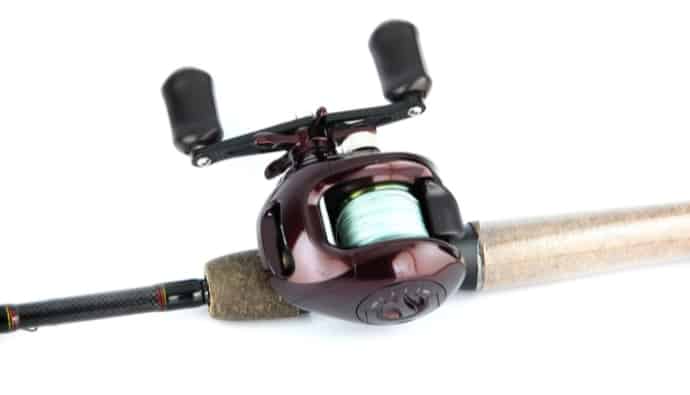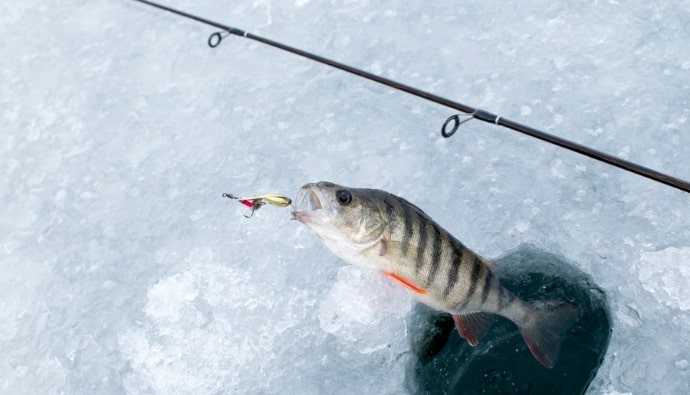Most experienced anglers say, “if it is weather you can fish in, then it is good fishing weather!” Typically, they are not far from the truth, provided the conditions are safe.
However, if you are new to fishing, you must be wondering, what is the best weather for fishing? You are not alone. We did some research and outlined the answers you need in this article.
We have certain weather conditions ideal for a successful fishing trip and others that would mean you go back home empty-handed.
Continue reading to learn more about these conditions.
How does weather influence fishing?
Weather conditions are one of the many factors that directly or indirectly affect fish behavior and fishing success. Although you might not have control over the fishing weather conditions, you can still make active choices against or towards them to achieve what works best for you.
Weather patterns often change constantly, and as such, the fish change their feeding behavior and patterns.
Therefore, one fishing weather condition or a combination of them can make a huge difference between catching fish and going home empty-handed.
It is vital to note that fish suddenly and strongly react to weather changes and patterns. Some ways in which weather affects water bodies include;
- Water column level
- Cloud cover
- Wind direction
- Light penetration
- Water temperature
- Location of food sources
- Oxygen level
- Barometric pressure
Weather changes cause these factors to change frequently. As such, fish will be forced to adapt to the changes.
Therefore, understanding the weather conditions that lead to fishing success and which ones do not will help increase your chances of catching fish.
Is a cloudy day ideal for fishing?
While fishing, the cloud cover will work in your favor, but the clouds must cover the entire sky. The best cloudy days for fishing are overcast days. This means that clouds obscure at least 95% of the sky.
Many anglers agree that the best fishing weather is when there is a grey blanket of clouds above you when fishing. This is because it brings added warmth and prevents direct sunlight penetration.
It will be even better if the clouds hold a little drizzle, but it should occasionally occur throughout the day. Besides, overcasts are ideal for fishing. This is because fish get the stars and moonlight.
The ideal wind direction for fishing
You have probably heard of this fishing rhyme;
“Wind from the east, fish bite the least;
Wind from the west, the fish bite the best;
Wind from the north, few sailors set forth;
Wind from the south blows bait in their mouths.”
Believe it or not, this fishing rhyme is fairly accurate. It is, however, important to note that the wind direction itself does not affect the fishing; rather, what the wind is carrying does.
For example, winds from the southwest or south are the best for fishing. They mostly carry warmer and more humid air with them. During fall and spring, these south and southwest winds bring warmer weather and higher water temperature, which activates the fish’s appetite.
On the other hand, during summer, the southwest and south winds bring stable weather conditions over a longer period. This is ideal for more fish activity, better feeding behavior, and more fishing success.
Contrary, the eastern winds are associated with cooler air and cold fronts. The northern winds are the worst to go fishing because they are linked with stormy weather and cold air.
The ideal temperature for fishing
Typically, temperatures vary with seasons. It is hard to settle on a specific temperature as the ideal for fishing success. However, the best air and water temperatures for all four seasons are moderate.
For example, fish tend to be more active on milder days than on cold and freezing days in winter. During summer, the feeding behavior of fish increases when temperatures are lower and the heat of the season is absent.
With temperature, the vital element is moderation. This is because extreme heat or extreme cold is worse for fishing.
On the other hand, the fish will be forced to adjust first to a too-rapid fall or rise in water temperatures. Usually, this takes several days, during which the fish are not very hungry or active.
The ideal Barometric pressure for fishing
Barometric pressure is a weather condition that is broadly discussed among anglers.
Many anglers argue that both long-lasting high-pressure and low-atmospheric-pressure systems are not ideal for fishing. They also agree that the shift from high-to-low or low-to-high (rising pressure) can be advantageous for fishing.
From my experience, I realized that the ideal barometric pressure for fishing is shifting from a high-pressure or medium-pressure system to a low-pressure system. For instance, low pressure usually comes before a storm or more unstable weather.
Typically, the fish tend to sense that barometric pressure shifts accurately, and they start feeding uncontrollably. You can use this window if you wish to experience successful fishing trips.
Does light affect fishing?
Usually, the early morning and the evening sun are the best weather for fishing since the fish activity is high and the fish bite well in hot zones. In the afternoon, fish move into the deep water, which makes the deep fish bite the best choice for midday.
Fish will move to deeper water or cooler water during warm and sunny days to stay comfortable.
Cloudy days are usually ideal for fishing trips since clouds diffuse the sunlight.
On the other hand, the morning sun warms the shallow water. This creates comfortable water temperatures for the fish, making them more active. As such, the late morning offers you great fishing weather conditions.
Low light penetration levels in the early morning or late evening allow the fish to lurk in the shallow water for meals. For instance, fish prefer the early morning sun and evening sun to the bright midday sun.
Are fronts good for fishing?
Many fish species will feed more during the times right before a cold front. However, the feeding will slow down during and after storms. Feeding will be poor for about a day after a cold front.
On the other hand, the increase in the water temperature experienced during a warm front will make the fish want to feed more.
Usually, the feeding will happen closer to the water surface as this is the area that happens to be warmer.
Are rains good for fishing?
You’re probably wondering, “do fish bite in the rain“?
Light rain is best for fishing. The light rain will wash insects and bait into shallow water and encourage a fish-feeding frenzy. The raindrops also help hide you from the fish by obstructing their view.
On the other hand, heavy rain can offer a conducive environment for fishing, especially if it is a big game you are after. For instance, more aggressive fish species will take the chance to ride the higher water column and make it easier for you to catch them.
However, too dense rain can prevent fish from seeing your bait.
Final Thought
The best weather for fishing should be the one where the temperature is moderate, winds are light and coming from the south or southwest, low pressure has occurred in the recent past, and there should be humidity in the air.
However, it is vital to note that weather is not the only determining factor of exactly when you should go fishing. Although it is ideal for planning your fishing trips when the weather is best for fishing, it does not always mean that you should not get out at any time to try your luck.
The most vital thing to always keep in mind is to ensure that you stay safe in whatever fishing weather condition you step out. Do not risk getting caught in high winds or storms.
Do you have any comments or suggestions? Let us hear from you in the comments section below.




 Facebook
Facebook YouTube
YouTube